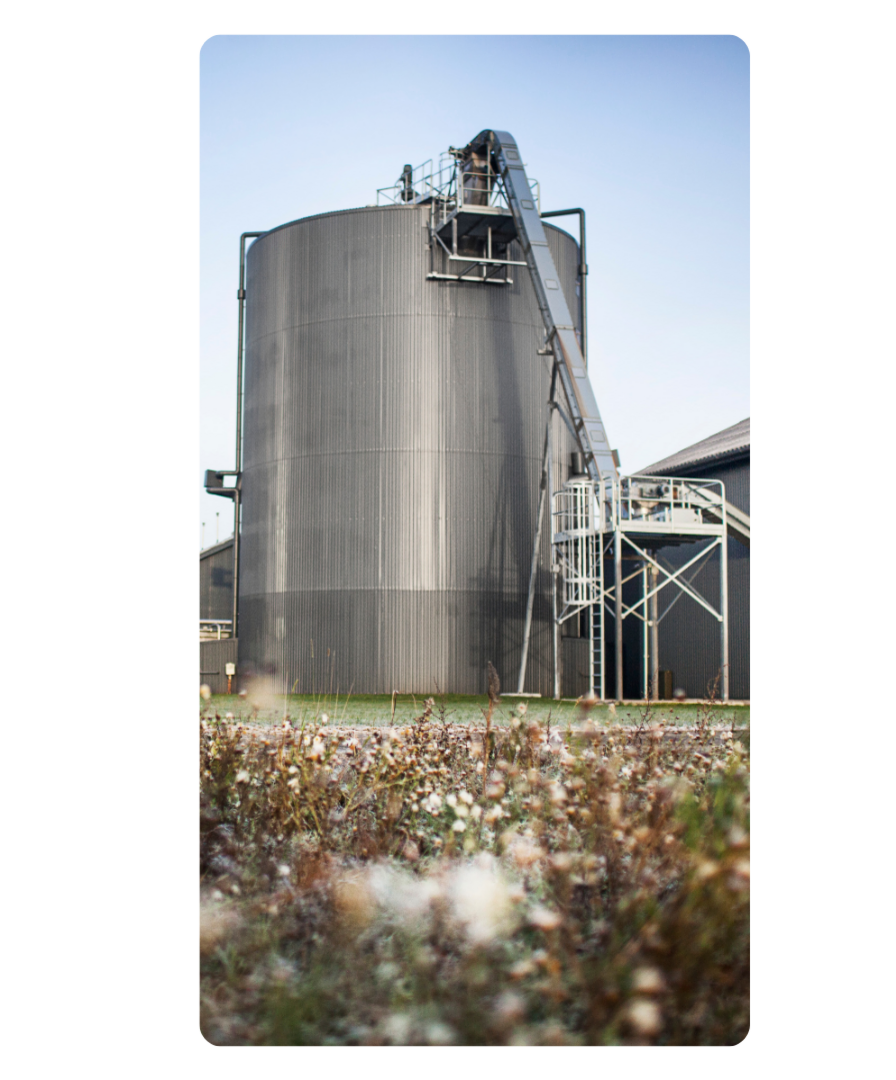Goal for Integrated Biorefineries: Scaling the Circular Bioeconomy
While it is feasible to develop theoretical models based on laboratory-scale experiments for biomass utilization in a circular bioeconomy, scaling these models to industrial relevance presents a significant challenge.
This research area focuses on bridging this gap by developing biomass conversion technologies and integrated biorefinery systems.
These systems are designed to enable the production of food, feed, materials, chemicals, fuels, and energy, thereby maximizing the value derived from biomass streams.

CBIO's technology platforms for green biorefineries have significantly facilitated the initial commercial implementation of green biorefining processes, including the production of grass-clover protein concentrates as a substitute for soy meal imports.
The biogas plant, which is the world’s largest dedicated to research, is instrumental in advancing technology platforms bridging biogas production with future Power-to-X ("P2X") technologies and optimal use efficiency of biogenic carbon. Here the developed platforms of both chemical catalyst methanization, and biomethanization are essential as well as further production of biomethanol.
The CBIO pilot platform for hydrothermal liquefaction (HTL) has fostered collaboration between research and industry, leading to the initiation of a demonstration-scale commercial facility for producing biooil from sewage sludge. This development marks a significant advancement in sustainable and circular bioresource utilization.
Extraction and Processing of Green Protein
Morten Ambye-Jensen: Green Biorefining Technologies
